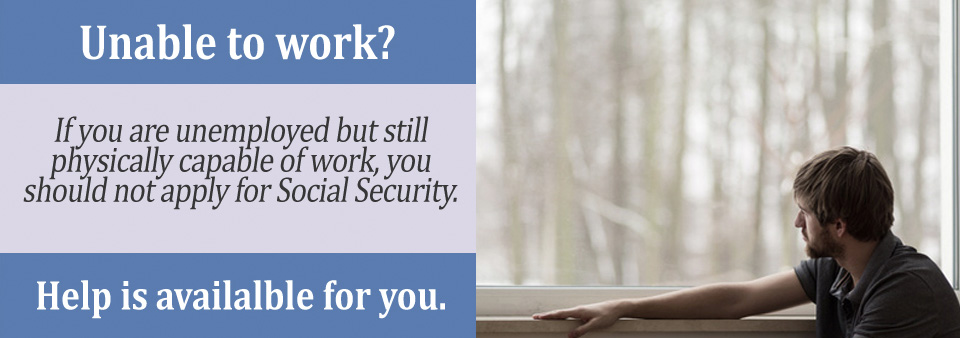When you’re out of work with a serious medical condition, it can be difficult to know just how to proceed. Disability benefits are one option and provide qualified workers and their families a level of financial security, even when income from employment is limited or nonexistent. Another option, dependent upon your specific circumstances, is to apply for unemployment benefits instead and decide later whether your disability is so severe that it will stop you from finding a new job.
SSA Benefits and Length of Disability
Basic eligibility for disability requires you have a severe, medically determinable impairment that has or will stop you from earning a substantial living for at least 12 months. And “medically determinable” just means that you have to prove your disability with appropriate medical records and using the Blue Book. There is usually a waiting period of at least three months, during which you must be disabled by your condition before you can qualify for benefits.
The Disability Waiting Period

Although three months is the minimum waiting period, with some medical conditions, it may be longer. This is because the SSA may need to see how your recovery goes before they’re able to determine if you will have long-term impairments that stop you from working.
It may take awhile before doctors know if you’ll improve and if you’ll be able to return to employment before the 12-month mark. Even when a longer wait is necessary though, the Social Security Administration (SSA) usually only requires four to six months before benefits can be granted. And once you’re approved, you can receive back benefits that date back to the onset of your disability.
It is also important to note that the SSA sometimes waives the waiting period and grants benefits under “presumptive eligibility.” This means they assume you’re going to be disabled long-term and therefore qualify for benefits. An advocate or disability attorney can help you understand the waiting period with a condition like yours or how the SSA usually handles claims for your specific disability.
Deciding if Employment is No Longer an Option for You
When a disability initially appears, it is an uncertain time for many people. You may not know if your medical condition(s) will stop you from working entirely or if you’ll be able to find another job in which your limitations don’t keep you from earning a living. You can apply for unemployment and continue to seek out new jobs during this time. Just keep in mind that you cannot be on unemployment and apply for disability, because these two programs contract one another.
Unemployment eligibility requires you are actively seeking a job, and disability benefit eligibility hinges on the idea that you can’t find gainful employment due to your mental and/or physical limitations. So if you are getting unemployment and apply for disability, the SSA will dismiss your claim and send you a denial notice.
You can however, go on unemployment and give yourself some time to decide if disability is the right move for you. If you find you’re unable to get and keep a job after a few months of searching because your medical condition prevents it, then you can stop unemployment and apply for disability benefits instead.
Submitting a Disability Application
Even if you get unemployment and later discover you can’t go back to work, you can apply for disability when the time comes. A disability attorney or advocate can help you determine when the time is right for you to stop unemployment benefits and submit your disability application. A lawyer or advocate can assist you throughout the application and review stages, and if the SSA turns you down, he or she can help you file an appeal too.